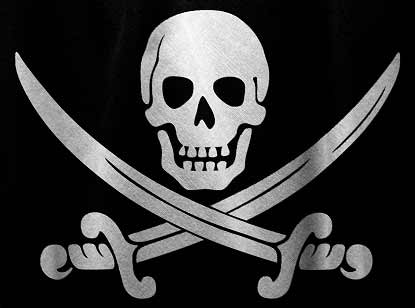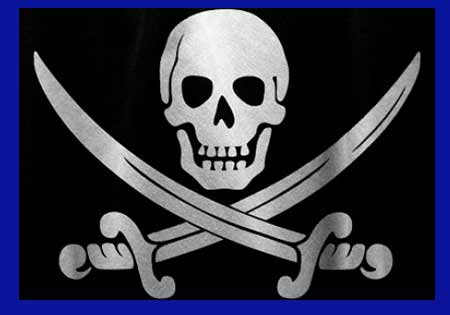
The first incident was in 1996 when I was a second officer when our cargo ship was transiting the Eastern part of the Singapore Straits. We had finished bunker operations, repairs and crew change in Singapore. The crew was tired, and the new captain decided he would not keep any anti-piracy watch for the voyage out. After midnight, we sailed out of Singapore with just me and a helmsman on the navigation bridge. In the engine room were the third engineer and the oiler. The rest of the ship, including the captain, had gone to sleep. The ship was still in fairly tricky waters as we still hadn’t passed Horsburgh Lighthouse (which marks the eastern limit of the Singapore Straits), and my full attention was focused between the radar, the chart, and looking at the lights of the oncoming traffic.
At around 5 am, I handed over the watch to the chief officer (I woke him up late so he could have an extra hour of sleep). I then went downstairs to the pantry, had a sandwich and a cup of warm milk before hitting the bed. I was awakened at around 8 am, three hours before I was supposed to wake up, and summoned to the bridge. I was half-asleep and annoyed- but upon reaching the bridge when I saw the new captain, the chief officer, the chief engineer, and the bosun – I realised something serious was afoot.
‘Did you see anything wrong after your watch’? Asked the captain.
‘Uh-no- sir’, I replied, still without the foggiest idea what was going on.
‘My cabin was broken into. I saw it this morning’. The captain explained that since the previous master had left the ship at Singapore late the previous night, he had slept in the adjoining owner’s cabin for the night until he would be able to change the bedsheets in the morning. But when he woke up in the morning to go into his cabin/office, he found the door ajar- with the slightest hint of a forceful entry. The lock was damaged. The captain’s safe had been removed from its slot in the captain’s office and taken away- with about USD 10,000 in cash.
The first check was if a crew member could have been involved. A search was conducted in all cabins, including mine. Nothing. As we looked around the ship, we something unusual at the stern of the ship. The rope (or halyard) for hoisting the ship’s flag (of the country of registry) was dangling in the water. There were scuff marks along the ship’s rail near the flag post. The paint on the deck nearby showed marks of a heavy object having being dragged- something heavy- like a safe.
By now, it was clear that we were robbed by a gang of robbers (probably armed) while most of the ship was asleep. Thankfully no crew came between the robbers and their loot, or the crew member could have been harmed. Later I came to know of cases where robbers stole crew personal belongings such as watches and cash at gun or knifepoint. Of course, if the crew kept anti-piracy watches and used deterrents such as fire hoses, the robbery could have been everted altogether.
When I signed off from the ship many months later, I was called into the office for a debriefing. After all the question and answer session – I was accused of sleeping on the watch – I think that was possibly said to provoke some response or a statement apportioning blame on possibly the captain or the chief mate. I had nothing to say- they could figure out that themselves- nor did I accept their statement – anyone who has navigated the Singapore Straits knows that a navigator has their hands full just trying to keep the ship on track and avoiding collisions. On top of that, keeping an eye out for stealth robber boats that may approach from the ship’s radar blind spots is a tough ask. I met the captain in a bar near the office- apparently, he was given a harder time than me in the office for failing to provide lookouts and anti-piracy resources in a known security hot spot.
My second experience with piracy was around a year later, again as a second officer on a tanker while we were anchored off an Asian port.
You may wonder why all these experiences were during my time as a second officer. Well, the second officer keeps the graveyard shift or 0000 – 0400 hrs; that’s when most security breaches happen. That’s when it’s just a couple of crew are on watch- the rest of the crew are asleep, it’s dark, and there’s less security enforcement ashore as well- ideal factors for the keen robber or stowaway.
On this ship, we were slightly better prepared- two crew members were patrolling the deck. The ship’s floodlights were on, but you couldn’t see more than 50 meters beyond the ship side. One of the crew members alerted me on the radio that he could hear an outboard motor. For several minutes, we peered out at the horizon but saw nothing. The ship was 270 metres long, and it took a while for all of us to scan the darkness. I didn’t hit the general alarm to wake up all the crew because there were also numerous fishing boats passing by, and it was difficult to make out an innocent fishing boat from one with a criminal intention.
After a while, my ears picked up a sound from the starboard side. I rushed over and saw ten decks right below the starboard bridge wing, in the water, a wooden dinghy with about six masked men alongside our ship, trying to secure a climbing line to our ship. Now, these men were expert climbers – they could get a 10-millimetre polypropylene line secured to the ship with a grappling hook and then climb up just with that rope (the rope had figure-of-eight knots at intervals of about a meter which helped them get a grip between their toes). I knew it was a matter of seconds before they would climb up on board, and it would be not easy to contain them after that. They could be carrying weapons and could threaten or injure our crew. So within a matter of seconds, I had pressed the alarm to wake up the ship’s crew and used the loudhailer to warn the boarders that they should not climb up the ship.
They shouted back, ‘we’re here to do business.’
I said no. I can’t remember if I used any expletives but it's likely I might have, given the situation.
I then warned them that I would drop something heavy on their boat unless they removed the line and got away from the ship.
The masked men didn’t take my warning seriously and prepared to board.
I thought quickly. We didn't have guns onboard to repel such hostile boarding attempts. I rushed to the bridge toilet and picker up the mop bucket. I turned on the faucet at full force and filled up the bucket. I then took the bucket over to the bridge wing and showed the boarders what I had in my hand. I told them I would drop it if they didn’t move. By now, they had a line up the ship. Now the boarders took notice- even in the dark, I could see their eyes widen with the realisation that a 20-litre bucket falling from a height of 30 meters could do serious harm to them and their boat. Still, one of them tried to climb up the rope.
Warning the men below to watch out, I let go of the bucket.
All the would-be robbers jumped from the boat into the water
The bucket landed in the middle of the boat and shattered the ropes that held the logs together. A hole became visible and water started entering the boat, but it was still afloat. The boarders swam back to their boat, revved the outboard motor and sped away into the darkness. In their hurry, they left the boarding line behind. We increased the patrols for the remaining duration of our anchorage and rigged some more fire hoses around the ship.
Fortunately, I didn’t face any more serious armed robbery or piracy incidents for the remainder of my time at sea. However, these two experiences (my stowaway experiences in a separate blog) were enough for me to start taking shipboard security seriously- even before 9/11 happened and the International Maritime Organisation made it mandatory for ships to carry a security certificate and a security plan. Later as a company security officer, I was responsible for the security preparedness of the ships in our fleet. At work, I still oversee the security strategy for our fleet and ensure the ships are properly hardened, the required resources are provided, and our shipboard teams are trained and vigilant against security threats. Security is still a top priority for me, and I admit it often gives me sleepless nights.
More from me on the topic:
Podcast episode: Precautions against piracy
Podcast episode: On piracy with maritime security expert Lars Bergqvist
My article in the International Maritime and Port Security journal


